Dir: Andrew Jarecki. US. 2003. 107mins
Capturing The Friedmans walked away with this year's Sundance grand jury prize for best documentary and deservedly so. An engrossing, troubling and, in the end, profoundly ambiguous re-examination of a child molestation case that tore one upper-middle class family apart on New York's Long Island during the late 1980s, this will surely linger longer in the audience memory than the entire roster of dramatic films showcased at the festival last month. A natural for TV given the worldwide media fervour for flaying suspected paedophiles and sexual predators in the public court of opinion, Capturing The Friedmans ought to have added theatrical potential for an enterprising and fearless distributor, particularly in the US. The challenge will be in getting audiences to overcome their knee-jerk revulsion and come bear witness to the tragic ordeal of a severely dysfunctional family caught in the crucible of a modern-day witch-hunt. But those that are willing to do so should not expect an easy resolution.
Left on its own, the lurid life-story of the Friedman family would provide enough sensationalist fodder to feed any tabloid TV show for weeks, especially since this clearly oddball clan saw fit to document so much of their own private lives using home movie cameras, But such dynamite material is merely the starting point for novice film-maker Andrew Jarecki, whose intriguing career resume includes stints as a musician and as the founding chief of Moviefone, the cinema ticket service he sold to America Online in 1999. By painstakingly piecing together the human story that lay behind all the accusations of child pornography and sexual abuse of minors levelled against the Friedmans, and withholding judgment throughout, Jarecki succeeds in subverting our very notions of what it means to tell the truth.
It is to Jarecki's immense credit that he and his collaborators manage to maintain an unsentimental distance, training an unblinking, empathetic eye on their subjects even as the skeletons start rattling loudly within the Friedmans' darkest closets. Jarecki never recoils in horror at the monstrous crimes that father Arnold Friedman, and eventually his son Jesse, stood accused of; nor does he engineer any undue sympathies for this married family of five, whose foibles and failings are made all too apparent, even in their home-shot videos. Behavioural revelations that might distort our balanced view of this family are introduced judiciously throughout the film, a deliberate display of editorial prudence that has the added advantage of keeping the jaw-dropping shock value going right through to the film's open-ended conclusion.
The troubles begin, wouldn't you know it, on a Thanksgiving eve in 1987. Just as the Friedmans are gathering for this most American of holiday dinners in this well-to-do, neatly manicured enclave of Great Neck, where Arnold teaches computer classes, their front door is shattered by a police battering ram. Arnold, it seems, has been collecting kiddie porn.
But police and sex-crimes investigators did not stop there: convinced that Arnold was an active menace to his young students, they started interviewing children in the neighbourhood using some highly questionable techniques, including hypnosis, on these impressionable children. Looking back on the case, the chief detective who led the police effort says, with chilling effect, that "you always want to be very careful about how you proceed because the one thing that you worry about, I know I worried about it all the time, is: just charging somebody with this kind of a crime is enough to ruin their lives". But that did not stop the cops from painting Arnold and Jesse as the most heinous sodomising deviants imaginable, despite the lack of any real physical evidence. The local community, feeling itself victimised, becomes an all-too-willing accomplice in this systematic character assassination, joining the media circus in what became a grotesque lynch-mob.
Even with the benefit of startling testimonies, incriminating personal histories and first-hand video footage, the audience are no nearer to knowing the exact extent of what happened all those years ago than it is at the beginning of Capturing The Friedmans. Which is precisely the point Jarecki seems intent on making: our memories have a habit of betraying us, whether as an act of self-delusion and denial or as a defiant defense mechanism. Truth and perception are rarely one and the same thing; even members of the Friedman family cannot agree on the basic facts, lending this film a Rashomon-like dimension. The implications of this should be as disquieting for documentary filmmakers, who pride themselves on uncovering the real truth, as they are for the rest of us trying to steer through the confused and perilous world around us.
Prod co: Hit The Ground Running Films
Int'l sales: Cinetic Media
Prods: Jarecki, Marc Smerling
Ed: Richard Hankin
Cinematography: Adolfo Doring
Additional photography: Marc Smerling, Rosanna Rizzo, Aaron Phillips, Brian Jackson, Charlie Beyer
Music: Andrea Morricone
Sound: John Gurrin

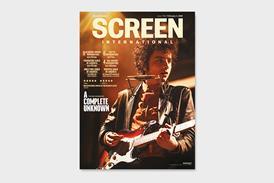


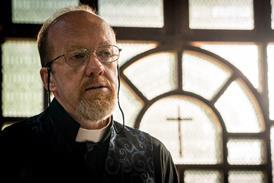
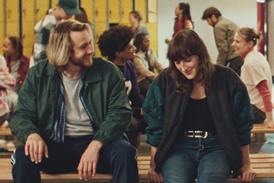

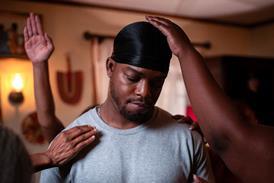





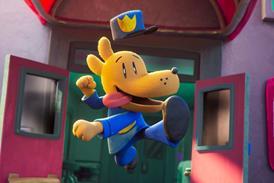
!["Within two weeks [of moving to Northern Ireland] I met Kneecap, the biggest caners in Belfast," says Peppiatt](https://d1nslcd7m2225b.cloudfront.net/Pictures/274x183/5/3/9/1442539_kneecap1creditpeadarogoill_298103.jpg)
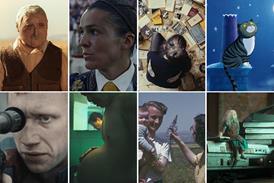

No comments yet